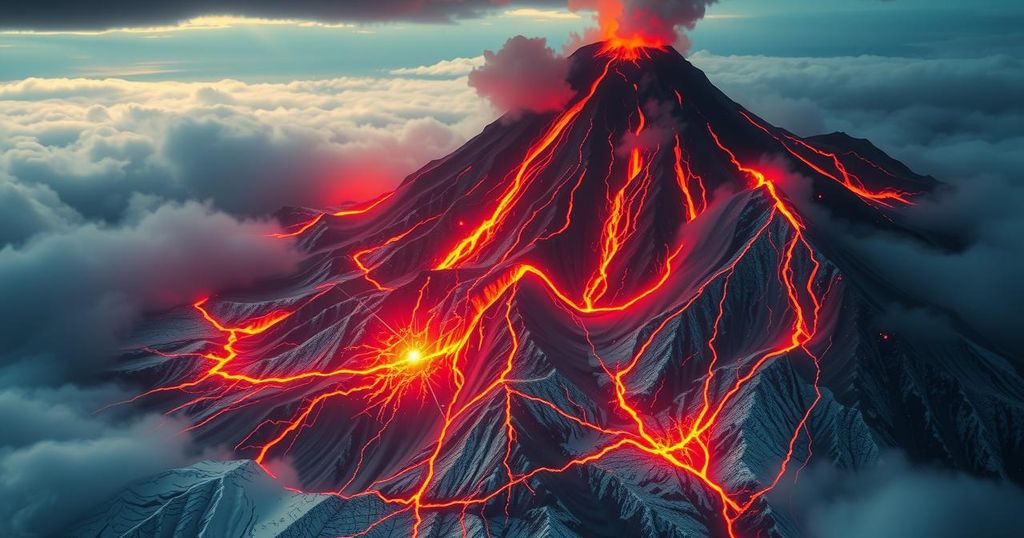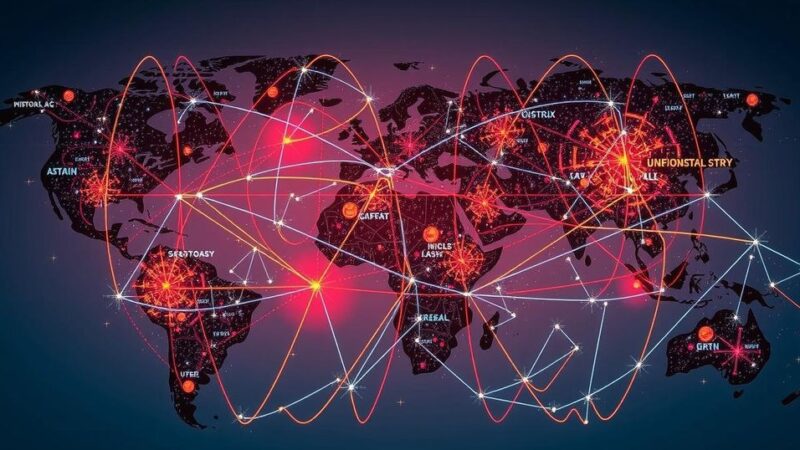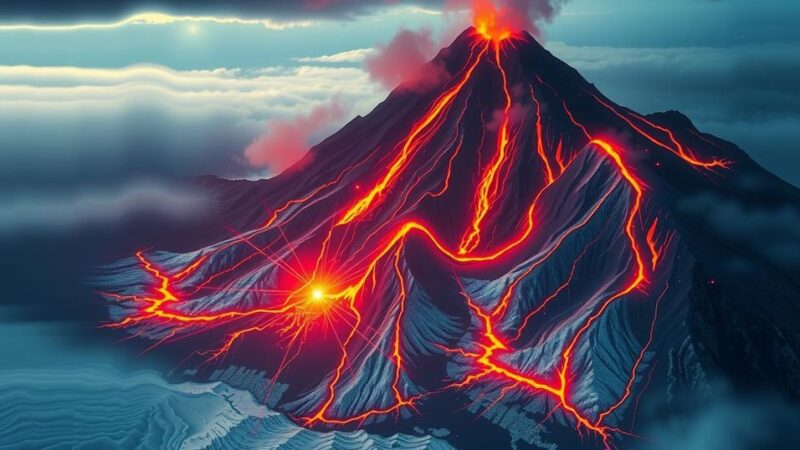The world faces an imminent volcanic eruption, with scientific studies indicating a 1-in-6 chance this century. Previous eruptions like Tambora drastically impacted global climate, and future events may have even greater consequences due to climate change. The next eruption could lead to significant cooling, food shortages, and economic loss, necessitating comprehensive preparedness strategies.
Recent scientific assessments indicate that the world may soon face a massive volcanic eruption that could have catastrophic effects on global climate and food security. The last major eruption, Mount Tambora in 1815, caused widespread cooling, crop failures, and significant human suffering. Current geological studies suggest a concerning 1-in-6 chance of a similar event occurring in this century, highlighting the necessity for preparedness in a climate-changed world that is more populated and vulnerable to natural disasters.
Volcanologists warn that the next eruption would differ substantially from Tambora due to the present environmental conditions, which may amplify its impacts. Such an event could lead to substantial cooling caused by sulfur dioxide emissions, resulting in temporary yet severe alterations to weather patterns, rainfall distribution, and global temperatures. Past records indicate that massive eruptions have caused average temperature drops between 1 to 1.5 degrees Celsius, with localized effects that could exceed this average.
The implications of a future eruption can be dire. The devastation would not only primarily affect those living near active volcanoes, but also lead to extensive global repercussions in agriculture, possibly instigating food shortages and geopolitical strife. Researchers caution that a decline of just 1 degree Celsius could drastically impact vital agricultural regions across the globe, as evidenced by historical eruptions’ effects on weather and crop yields.
Despite the potential for an event to lower global temperatures in the short term, scientists argue that such cooling would not mitigate the ongoing climate crisis. Economic projections indicate that one significant eruption could incur losses exceeding $3.6 trillion within the first year. Thus, the economic toll would be immense, compounding the already existing challenges posed by climate change.
Preparation for such eruptions is crucial. Experts emphasize the need for comprehensive assessments of worst-case scenarios, systematic stress tests, and the formulation of response strategies, including evacuation plans and food security measures. The actual location and timing of the next eruption are unpredictable, but the potential risks warrant serious attention and proactive planning to shield humanity from impending chaos due to volcanic activity.
Volcanic eruptions have historically played a pivotal role in shaping Earth’s climate and environment. The eruption of Mount Tambora in 1815 is noted as the most powerful recorded eruption, resulting in global cooling and disastrous fallout including the failure of crops and human fatalities. Scientific investigations into past eruptions have underscored their ability to significantly alter weather patterns and temperatures, influencing human history and agricultural practices. Present-day analysis indicates a notable vulnerability given the amplified risks associated with climate change and a growing global population.
In conclusion, the looming threat posed by potential massive volcanic eruptions necessitates an urgent reassessment of global preparedness strategies. With geological data suggesting a notable probability of occurrence within this century, it is vital to recognize these events’ far-reaching impacts on climate stability, agricultural viability, and economic security. As the world grapples with climate change, proactive measures are essential to mitigate the risks associated with volcanic activity and to safeguard humanity against inevitable natural disasters.
Original Source: www.cnn.com







